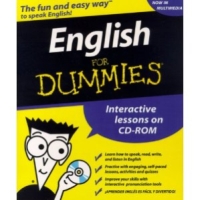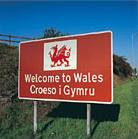
Recently Rated:
Stats
Why the English language, compared to Welsh, is a nightmare.
Consider the following sentences... 
1. The bandage was wound around the wound.
2. The farm was used to produce produce.
3. The dump was so full it had to refuse more refuse.
4. We must polish the Polish furniture.
5. He could lead if he would get the lead out.
6. The soldier decided to desert his dessert in the desert.
7. Since there was no time like the present, he thought it was time to present the present.
8. A bass was painted on the head of the bass drum.
9. When shot at, the dove dove into the bushes.
10. I did not object to the object.
11. The insurance was invalid for the invalid.
12. There was a row among the oarsmen on how to row.
13. They were too close to the door to close it.
14. The buck does funny things when does are present.
15. A seamstress and a sewer fell down into a sewer line.
16. To help with planting, the farmer taught his sow to sow.
17. The wind was too strong to wind the sail.
18. After a number of injections my jaw got number.
19. Upon seeing the tear in the painting I shed a tear.
20. I had to subject the subject to a series of tests.
21. How can I intimate this to my most intimate friend?
 Now, let's compare that with the Welsh language, which, unlike English is almost completely consistent in its pronunciation rules. If you see place names local to me like Dwygyfylchi, Penmaenmawr, Penisarwaen, Llanrug, Froncysyllte, Llanfairfechan, Abergwyngregyn and Llanfairpwllgwyngyllgogerychwyrndrobwllllantysiliogogogoch - you just need to apply the rules, cover the surrounding area with waterproof sheeting and read them out.
Now, let's compare that with the Welsh language, which, unlike English is almost completely consistent in its pronunciation rules. If you see place names local to me like Dwygyfylchi, Penmaenmawr, Penisarwaen, Llanrug, Froncysyllte, Llanfairfechan, Abergwyngregyn and Llanfairpwllgwyngyllgogerychwyrndrobwllllantysiliogogogoch - you just need to apply the rules, cover the surrounding area with waterproof sheeting and read them out.
However, in almost every other aspect Welsh presents so many challenges to learners. The name of this land of Wales in its native tongue is Cymru but depending on context it might be Gymru or Nghymru. Similarly I do my local shopping in Bangor which could also be Fangor or Mangor. Counting should be easy: one, two, three, four but actually it's un, dau (or dwi), tri (or tair), pedwar (or pedair). Twenty is dau deg but sometimes ugain. Are you losing the will to live yet? Don't ask me how many ways you can say yes or no - I'm up to twenty or so but there are many more, again according to context.
So why am I a Welsh learner? Because hiraeth drew me home to Wales and although all Welsh people (round here 3 in 4 are first-language Welsh) do speak English, I want to connect with my roots and speak my grandparents' and mother's first language. Cymru am Byth!

It's great you're learning to speak Welsh. Wherever you go, if you can understand the language you feel more connected to the place. Dal ati!
Wow, thank you for that, very funny and informative! Loved reading your sentences and examples